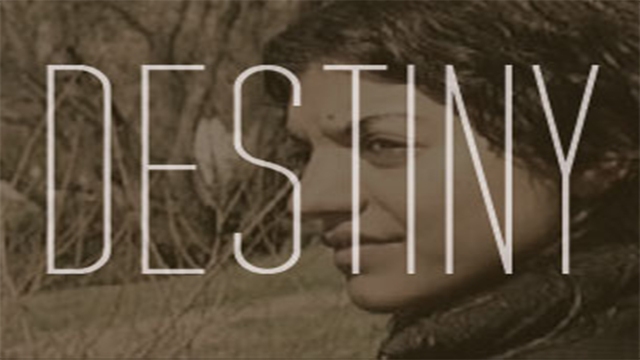Destiny
From the Emmy award winning producer of Behind the Veil, we see how gypsies are facing up to the challenges of twenty-first century life.
 Maria Jose is a pretty, charismatic twenty eight year old. She graduated from one of Spain's top universities and has a prestigious career in social services. But she's also a gypsy and has had to overcome insurmountable obstacles to succeed. This uplifting film provides a new insight into the Roma community. Through the eyes of Maria Jose, we see how gypsies are facing up to the challenges of twenty-first century life.
Maria Jose is a pretty, charismatic twenty eight year old. She graduated from one of Spain's top universities and has a prestigious career in social services. But she's also a gypsy and has had to overcome insurmountable obstacles to succeed. This uplifting film provides a new insight into the Roma community. Through the eyes of Maria Jose, we see how gypsies are facing up to the challenges of twenty-first century life.
A beautiful young women delicately picks her way between piles of discarded tyres and rubbish. She's visiting friends in the Carquejo neighbourhood in Galicia. The area is little more than a slum. There's no running water, electricity or garbage collection. This marginalised district was supposed to be a normal housing development. But the only people who live here are gypsies so it has been abandoned by public authorities. "It hurts to see other gypsies living like this because of their ethnicity," states social worker Maria Jose. "To know that mainstream society does not care enough to eliminate this poverty."
Maria Jose first realised she was different at school. She was the only gypsy in a class of 40. Children would exclude her from their games. She felt hurt and out of place. "I only continued to study because of my parents," she recalls. But years later she secured a place at the prestigious Salamanca university. "What really impressed me about Maria Jose was her commitment," recalls her tutor. "I am moved by her passion to change things."
Now a social worker, she works hard to improve conditions for other gypsies. "Maria Jose is a role model to us," one woman states. She encourages her friends to seek work and to integrate with other communities. But it's an arduous task. "When I look for a job I am discriminated against because of my gypsy looks," says one women. Another tells of how she was fired from her job when her employer found out she was a gypsy. "When landlords hear my voice they always say 'I don't rent to gypsies.'"
Although gypsies have existed in Spain since the fifteenth century, they have always faced prejudice and persecution. From the decrees of the Catholic kings to the Nazi concentration camps, theirs is a tragic history. And it's clear these attitudes persist today. "Gypsies are dirty because they work with filth," comments one man "Their women don't dress like normal women. They wear clogs. That's not normal."
But as Maria Jose shows, Roma women are progressively becoming more empowered and forcing other people to take them seriously. They no longer read palms or just take care of the home. They wear trousers and drive cars, marry later and only have one or two children. "Gypsy women used to be dominated by men. Today they are more independent," comments one woman. And, as Maria Jose states, "Destiny is not written. We build it everyday."
FULL SYNOPSIS
